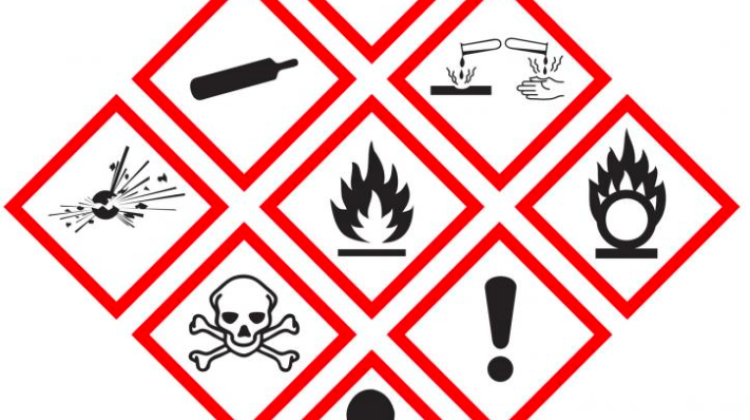First graduates of unique CBRN threats course
 Photo: Fotolia
Photo: Fotolia
31 specialists from Poland and other EU countries completed the first in Europe postgraduate "CBRN Security Manager" course. They learned how to correctly react and manage entire operations related to chemical, biological, radiation and nuclear threats.
Interdisciplinary postgraduate "CBRN Security Manager" course - concerning chemical, biological, radiological and nuclear threats and threats associated with explosives - is a joint initiative of the University of Lodz and the police. The course is addressed to the management staff of institutions and services responsible for ensuring internal security.
The first group of students were officers of the Polish Police, Border Guard, State Fire Service, Government Protection Bureau and other state institutions involved in combating these types of threats. The students also included people, whose jobs were related to internal security of other EU countries including Spain, Portugal, Hungary, Croatia, France, Slovakia, Estonia and Italy.
According to Dr. Michał Bijak from the Faculty of Biology and Environmental Protection, University of Lodz, the aim of the studies is to educate qualified personnel that would manage entire operations related to chemical, biological, radiological and nuclear threats and threats related to pyrotechnic identification.
This includes crisis management of subordinate services, detection of agents, designation of security zones, identification and neutralization as well as counteracting the spread of agents.
The course consists of theoretical classes taught by academic lecturers and practical laboratory and field training. Former GROM operatives were among those passing knowledge to students.
The biological part of the course was carried out by the Faculty of Biology and Environmental Protection of the University of Lodz; thematic blocks included the problems of toxicology, microbiology and genetics, as well as laboratory exercises in biological agents detection. Practical exercises concerning the collection of biological samples and detection of biological agents during field operations were carried out by the Military Institute of Hygiene and Epidemiology.
The chemical and radiological part was carried out by the Military Institute of Chemistry and Radiometry, and the topics included warfare toxic agents, industrial toxic agents, detection of toxic chemicals and ionising radiation, decontamination of people and equipment.
The topics related to sapper-pyrotechnic activities were carried out at the International Security and Emergency Management Institute in Slovakia. Anti-terrorist procedures, management of CBRN emergency services and practical exercises in a terrorist attack environment were the domain of the Bureau of Antiterrorist Operations of the Police Headquarters and experts from the University of Lodz.
The Police Academy in Szczytno was responsible for activities related to crisis management, international legal aspects of CBRN-E, as well as securing and collecting forensic evidence.
According to Dr. Bijak, the funds granted for the project will allow to create and publish a framework program of postgraduate course "CBRN Security Manager".
"The permanent result of the project will be a published specialist student script covering all topics taught during the course and containing all laboratory-polygon procedures and guidelines. This will enable continued education based on the developed educational programs and materials. The materials will be made available on the project website in the form of an e-learning platform" - added Dr. Bijak.
The course is financed from the EU budget within the framework of the international project "Support for European Union action in the field of CBRN security managers education". (PAP)
szu/ zan/ kap/
tr. RL
Przed dodaniem komentarza prosimy o zapoznanie z Regulaminem forum serwisu Nauka w Polsce.















